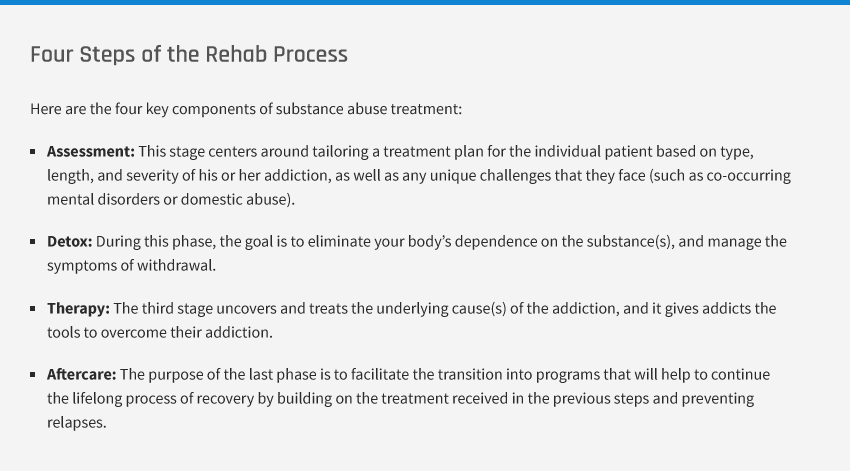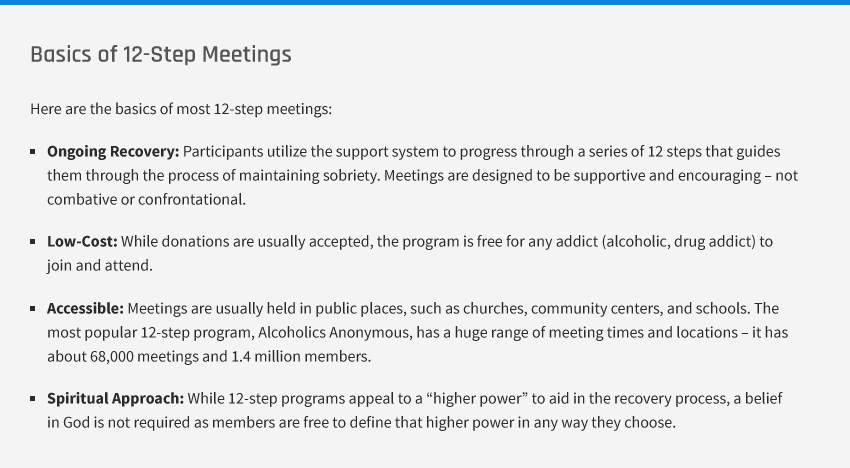In recent years, the Louisville area has experienced a rise in overdose deaths involving heroin. Between 2014 and 2017, heroin-related overdose deaths in Jefferson County increased by 28.57%, growing from 105 cases in 2014 to 135 cases in 2017. Meanwhile, the total number of overdose deaths in the county swelled by 108.82% during the same time frame. Interestingly, the percentage of overdose deaths involving heroin fell 38.43% between 2014 and 2017 despite a rise in the raw number of heroin-related deaths in the same time period. This disparity may be attributed to a coinciding rise in overdose deaths in Jefferson County involving another deadly opioid, fentanyl.
Alcohol, Drug, and other Rehab Centers in Louisville, KY
TABLE OF CONTENTS
Getting Help
What to Consider When Choosing a Rehab Center
When thinking about rehab programs and treatment options in Kentucky, important questions to consider include:
- Which service setting is best for me? Read the following guides to understand residential inpatient programs and outpatient programs.
- Which specialized rehab programs do I need? Read about the differences between holistic rehabs, rehabs for dual diagnosis, and programs only for alcohol and drug detox.
- How long should I stay? Consider the differences between a shorter rehab length (30 days) or a longer-term option (60, 90, or 120+ days).
Keep in mind that multiple factors will impact your rehab options, such as the severity of your addiction, your financial position, and your unique personal circumstances.
For more information on how to make these decisions, read our guide to Choosing the Right Rehab.
The Best Rehabs in Louisville, KY
The cost of rehab can be high, depending on your location and the specific needs you have. However, you can find help with your recovery, regardless of whether you have insurance. According to the Substance Abuse and Mental Health Administration (SAMHSA), there are 55 substance abuse treatment centers in the Louisville area. Many of these centers make it their mission to provide addiction recovery services to all residents, regardless of their financial position. Following are three of the top substance abuse treatment centers in the Louisville area that offer financial assistance.
1. Greater Louisville Counseling Center
Greater Louisville Counseling Center provides substance abuse treatment services on an outpatient basis and accepts clients presently on opioid medication. The center utilizes treatment approaches such as cognitive behavioral therapy, trauma-related counseling, brief intervention, motivational interviewing, 12-step facilitation, anger management, and relapse prevention. Ancillary services offered by the center include HIV/AIDS and hepatitis education and support, employment counseling, assistance with obtaining social services, housing services, self-help groups, and social skills development.
The center works with clients who have DUI offenses and have been referred from the court system. It also provides services for the deaf and hard of hearing. Greater Louisville Counseling Center accepts Medicaid, private health insurance, and out-of-pocket payment; it also offers financial assistance and a sliding fee scale for those to assist those clients with the most financial need.
2. Cleanse Clinic
Cleanse Clinic offers substance abuse treatment on an outpatient basis and both prescribes and administers Buprenorphine and Naltrexone in the treatment of opioid addiction. It provides a wealth of treatment approaches including cognitive behavioral therapy, dialectical behavioral therapy, motivational interviewing and incentives, anger management, brief intervention, trauma-related counseling, and both 12-step facilitation and the Matrix Model. The center’s ancillary services are not as comprehensive but still include mental health services, such as individual, group and family counseling; and employment counseling and training.
Cleanse Clinic offers a variety of programs for diverse demographics, encompassing adult men, adult women, veterans, members of the LGBT community, pregnant and postpartum women, people with HIV/AIDS, domestic and sexual abuse survivors, seniors and older adults, transitional age young adults, people who have experienced trauma, persons referred from the court system, active duty military members and their families, and persons with co-occurring mental health and substance abuse disorders. The clinic accepts Medicaid, private health insurance, state-financed health insurance plans other than Medicaid, and out-of-pocket payment.
3. The Healing Place
The Healing Place has several locations in Louisville, including an inpatient men’s campus, an inpatient women’s campus, and an outpatient recovery center that services both men and women. These locations all focus on substance abuse treatment and detoxification and both prescribe and administer Naltrexone for the treatment of opioid addiction. The Healing Place provides a multitude of treatment approaches from brief intervention, cognitive behavioral therapy and motivational interviewing/incentives to relapse prevention and 12-step facilitation. Ancillary services offered to patients include aid with obtaining social services, transportation assistance, housing services, peer-support services, individual counseling and self-help groups, HIV/AIDS and hepatitis education and support, and social skills development.
The Healing Place operates via government funding and provides comprehensive substance abuse treatment services at no cost to its clients.
Affordable Treatment Centers in Louisville
| Rehab Name | Contact Information |
| Centerstone Addiction Recovery Center | 600 South Preston Street Louisville, KY 40202 Main Tel: 502-583-3951 |
| Cleanse Clinic | 645 South Roy Wilkins Avenue Louisville, KY 40203 Main Tel: 502-583-4092 |
| Greater Louisville Counseling Center | 332 West Broadway, Suite 905 Louisville, KY 40202 Main Tel: 502-587-9737 |
| The Healing Place | Men’s Campus 1020 West Market Street Louisville, KY 40202 Main Tel: 502-585-4848 Intake Tel: 502-583-0369Women’s Campus 1503 South 15th Street Louisville, KY 40210 Main Tel: 502-585-4848 Intake Tel: 502-568-6680 |
| Methadone/Opiate Rehabilitation and Education Center (MORE) | 1448 South 15th Street Louisville, KY 40210 Main Tel: 502-574-6414 |
| The Morton Center | 1028 Barret Avenue Louisville, KY 40204 Main Tel: 502-451-1221 |
Finding a Substance Abuse Treatment Center in Louisville
Start by determining your coverage
Determining your health coverage is the first step to choosing the best treatment facility for you. You can reach out to your private or healthcare marketplace insurance provider to find out which treatment centers you are able to utilize. To determine if you qualify for low-income Medicaid services, and to learn your eligibility, visit the Kentucky Cabinet for Health and Family Services website. No matter the type of coverage you have, all public and private insurance companies must cover substance abuse treatment for qualified individuals.
Use our database to find a treatment center near you
The tool below lists all of the treatment centers in the state of Kentucky recognized by the Substance Abuse and Mental Health Services Administration (SAMHSA). Enter your zip code and select the filter icon to find relevant rehab centers near you.
Schedule an assessment
If your treatment will be covered by insurance, your first step will likely be to schedule an assessment by a therapist, counselor, or another qualified individual. Most rehab facilities provide assessments, or your primary care provider may refer you. Contact companies in our database above to discover if they will provide this service.
Find a Rehabilitation Facility Near You
Filter Your Search
Popular Searches
Type Of Care
Treatment Approaches
Service Setting
Age Groups Accepted
Ancillary Services
Facility Operation
Facility Smoking Policy
Gender Accepted
Language Services
License Certification Accreditation
Payment Assistance Available
Payment Methods and Insurance Accepted
Special Programs Groups Offered
What to Expect in Rehab
Addiction treatment is a multifaceted industry with countless techniques and philosophies for recovery. As a result, the science of studying addiction is constantly changing and improving. However, the core elements of rehabilitation remain similar.

For more on what to expect in rehab, read our guide on the addiction rehabilitation process
Finding Aftercare in Louisville
Rehabilitation can be a lifelong venture. Without proper aftercare upon release from a treatment facility, the chances of relapse rise. A variety of aftercare options are available in most communities, such as follow-up visits for continued therapy, sober living homes, and group therapy. According to research, long-term participation in aftercare activities such as these dramatically improves the outcome of rehabilitation efforts and the likelihood of long-term abstinence from future drug use.
Alcoholics Anonymous, a national addiction support group, created the 12-step process for recovering from alcohol addiction. Today, many other resources, like Narcotics Anonymous, use a similar technique for those struggling with drug addiction.

Contact the appropriate local organization to find an AA or NA meeting near you
Use our directory tool below to find organizations that can assist with locating Alcoholics Anonymous (AA) or Narcotics Anonymous (NA) group meetings near you. Meeting times and locations change periodically, so it is wise to call ahead to ensure the online information is accurate.
Alcoholics Anonymous (AA) and Narcotics Anonymous (NA) Database
| Name | City | Program | Telephone | Spanish Hotline |
|---|
Sober Living Homes
Sober living homes, or recovery residences, encourage stability and independence for recovering addicts while helping them to maintain their sobriety. The supportive and positive environment of sober living homes combined with a zero-tolerance policy for drug and alcohol use helps residents avoid relapse and protects all members of the community. Research shows that a community which incentivizes productivity, especially the cultivation of workplace skills and healthy relationships, encourages persons to place a positive and sustained focus on building a life outside of their addiction.
Sober living home residents are expected to care for their homes as if they were renting, with expectations such as chores and rent payments. Support groups in each home are based upon house principles, and attendance is usually mandatory. Residents are often welcome to stay anywhere from a few months to many years, given they follow the community rules and avoid relapse, as these homes do not tolerate drug and alcohol use.
You can find sober living communities in Louisville by checking our database, or you can select the appropriate filter from our tool above. Alternatively, you can head to our guide on sober living homes to learn more about them, as well as search for a certified recovery residence in your area.
Substance Abuse in Louisville
Heroin-related overdose deaths have increased in Jefferson County
28.57%
rise in heroin-related deaths in Jefferson County, 2014-2017
108.82%
rise in total overdose deaths in Jefferson County, 2014-2017
Heroin-Related Overdose Deaths in Jefferson County, 2014-2017
| Year | Heroin-Related Deaths | Total Overdose Deaths | Percentage of Overdose Deaths Involving Heroin |
| 2014 | 105 | 204 | 51.47% |
| 2015 | 131 | 268 | 48.88% |
| 2016 | 122 | 364 | 33.52% |
| 2017 | 135 | 426 | 31.69% |
| Percentage Change | +28.57% | +108.82% | -38.43% |
Fentanyl-related overdose deaths multiply in Jefferson County and Kentucky
A large percentage of overdose deaths in Jefferson County and Kentucky in recent years can be attributed to the growing prevalence of fentanyl. Fentanyl-related deaths in Kentucky increased by a staggering 530.58% between 2014 and 2017, rising from 121 deaths to 763 deaths. Alarmingly, fentanyl-related deaths in Jefferson County spiked a mind-boggling 5,380%, growing from only five cases in 2014 to 274 cases in 2017. By comparison, heroin-related deaths in Jefferson County increased by just 28.57% in the same time period.
The percentage of drug and alcohol-related deaths in the Louisville area aligns with the national average
13.03%
of Jefferson County deaths are caused by drugs and alcohol
12.71%
of US deaths are caused by drugs and alcohol
Between 2008 and 2017, 11,085 deaths resulted from drugs and/or alcohol use in Jefferson County. This percentage is 13.03% of the total number of deaths among all ages for the same time period in the county. Overall, this percentage is only 0.32% higher than the percentage of deaths attributed to drugs and alcohol in the United States during that time frame.
Drug and Alcohol-Induced Deaths Between 2008 and 2017
| 0-17 | 18+ | All Ages | |
| Drug-Induced Deaths in Jefferson County | 8 | 9,630 | 9,638 |
| Alcohol-Induced Deaths in Jefferson County | 1 | 1,446 | 1,447 |
| Total Deaths in Jefferson County | 1,090 | 83,983 | 85,073 |
| Percentage of Drug & Alcohol-Induced Deaths in Jefferson County | .83% | 13.19% | 13.03% |
Source: CDC Wonder
Key Indicators of Substance Abuse
Collecting data on exactly how communities are affected by substance abuse issues can be difficult to decipher because people are often reluctant to be honest about their addictions for a variety of reasons. Regardless, we can consider several data points to understand the larger impact of substance abuse in Louisville. We researched statistics from sectors such as opioid prescription rates and the prevalence of sexually transmitted diseases across the area to provide a broader view of how substance abuse issues impact Louisville.
Opioid prescription rate falls in Jefferson County but remains higher than the national rate
Between 2013 and 2017, the opioid prescription rate in Jefferson County fell 20.97%, from 96.8 prescriptions per 100 residents to 76.5 prescriptions per 100 residents. The average opioid prescription rate across the United States dropped comparably during the same time period, decreasing by 24.84%. However, the number of opioid prescriptions per 100 residents in Jefferson County consistently remained considerably higher than the national average each year between 2013 and 2017.
76.5%
opioid prescriptions per 100 Jefferson County residents, 2017
58.7%
opioid prescriptions per 100 U.S. residents, 2017
The disparity between the increase in opioid-related overdose deaths and the decrease in the opioid prescription rate in Jefferson County may be attributed to the increasing hesitancy of physicians to issue prescriptions for opioids in the wake of the opioid epidemic. It may also indicate a rise in illegally obtained opioids.
Opioid Prescription Rates in Jefferson County and the U.S., 2013-2017
| Year | Opioid Prescriptions Per 100 Residents in Jefferson County | Opioid Prescriptions Per 100 Residents in the U.S. |
| 2013 | 96.8 | 78.1 |
| 2014 | 95.5 | 75.6 |
| 2015 | 88.5 | 70.6 |
| 2016 | 83.4 | 66.5 |
| 2017 | 76.5 | 58.7 |
| Percentage Change | -20.97% | -24.84% |
Source: CDC, U.S. Opioid Prescribing Rate Maps, 2013-2017
The prevalence of sexually transmitted infections in the Louisville area is much higher than in Kentucky
County Health Rankings for Jefferson County and Kentucky for 2016 to 2019, which present data trends from 2013 to 2016, reveal that the prevalence of sexually transmitted infections (STIs) has increased in recent years. In Jefferson County, the rate of STIs rose 3.83%, from 658.5 per 100,000 residents in 2013 to 683.7 per 100,000 residents in 2016. In Kentucky, the rate of STIs grew a slightly higher 5.62%, from 391.2 per 100,000 residents in 2013 to 413.2 per 100,000 residents in 2016. Significantly, the prevalence of STIs in Jefferson County was 68.33% higher than in Kentucky in 2013 and 65.46% higher than in Kentucky in 2016.
The increased prevalence of sexually transmitted infections in Jefferson County could be connected to the rise in the use of intravenous drugs, such as heroin and fentanyl, in the area. According to the CDC, persons who inject drugs are at a higher risk of practicing unsafe sex, and, consequently, also at a higher risk of contracting an STI and sharing it with their sexual partners. To combat the spread of STIs and other contagious diseases, the Louisville Metro Public Health Department formed the Needle Exchange Program to provide clean syringes to participants.
Take Action
Many resources are available in Louisville and the surrounding area for those persons who are struggling with substance abuse and addiction. Use our tool to discover a rehabilitation center near you that can help to determine your insurance coverage and rehab needs. Many low-cost centers can be of assistance if you don’t have insurance or are unable to afford treatment.


